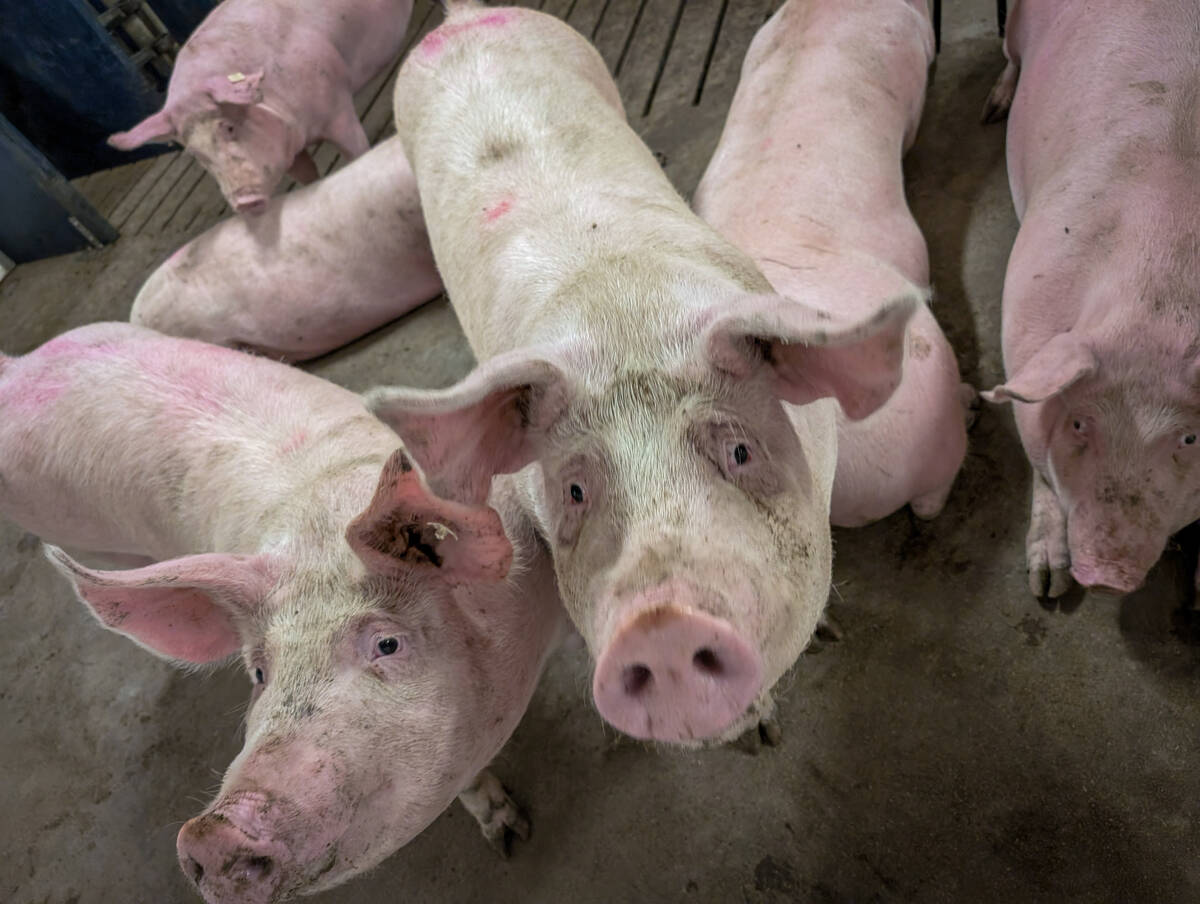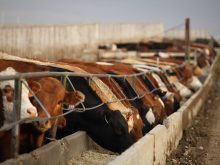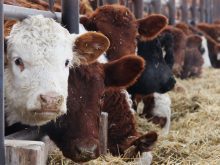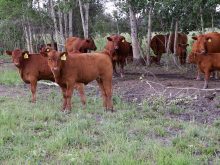For the week ending March 2, Western Canadian feeder cattle markets traded steady to $5 higher on average. Higher-quality strings under 600 pounds traded $5 to as much as $10 higher in some cases, but the lighter weight categories were quite variable across the prairies. Calf numbers are limited at this time of year and there appears to be stronger demand for grassers. Feedlot operators continue to shrug the potential U.S. tariff threat coming on April 2. Various comments from the White House were viewed as friendly for cattle and beef but it’s hard to decipher.
In central Alberta, a larger group of red mixed steers weighing 911 pounds on barley and silage diet with full processing records sold for $377. North of Saskatoon, mixed “cleaned up” steers on backgrounding ration with full preconditioning gauged at 920 pounds traded for $359. Southeast of Edmonton, Simmental-based heifers scaled at 902 pounds dropped the gavel at $345. In southern Alberta, larger-frame, mixed medium flesh heifers weighing 875 pounds on background-controlled weight gain ration with full preconditioned records were priced at $360 FOB farm.
Northwest of Winnipeg, black white face steers weighing 824 pounds reportedly traded for $400. At the same sale, Charolais heifers evaluated at 840 pounds moved through the ring at $354.
Read Also

Pork sector targets sustainability
Manitoba Pork has a new guiding document, entitled Building a Sustainable Future, outlining its sustainability goals for the years to come.
In central Saskatchewan, larger-frame, thin Simmental-based steers on the card at $710 pounds apparently sold for $433. Northeast of Calgary, wide-frame, thin, lean Limousin-cross heifers with a mean weight of 700 pounds were valued at $394.
In southern Alberta, Gelbvieh golden weaned steer calves around 610 pounds with full preconditioning records were valued at $490. In the Edmonton area, a smaller package of Charolais heifers weighing just over 600 pounds supposedly rang the bell at $460. In central Saskatchewan, a smaller package of medium-frame, black mixed weaned heifers weighing 610 pounds apparently traded for $440.
North of Calgary, a small package of mixed weaned steers on silage and canola meal diet with full processing data weighing 525 pounds reached up to $580. In central Alberta, black steers weighing just over 500 pounds were last bid at $575. At the same sale, black heifers evaluated at 518 pounds reached $505. In southern Alberta, larger-frame mixed heifers scaled at 510 pounds supposedly traded at $495.
In Alberta and Saskatchewan, cattle on feed 150 days and longer as of March 1 were sharply lower than last year. However, Alberta packers were buying fed cattle on a dressed basis in the range of $450-$455, relatively unchanged from last week. The Canadian consumer is backing away from the market at higher levels. Secondly, Alberta packers don’t want to be overbought with cattle if beef is on the list of U.S. tariffs to be implemented on April 2.
In the U.S., cattle on feed 150 days or longer as of March 1 were 2.766 million head, up 1.3 per cent or 36,000 head from March 1, 2024. The U.S. slaughter is coming in below year-ago levels while processing weights are up sharply from last year. U.S. second quarter beef production will be similar to year-ago levels barring tariffs on Canadian fed cattle.
As of March 18, the managed money had a record long on the feeder cattle futures. Remember, the feeder cattle are the live cattle five months forward. If there are no U.S. tariffs implemented on Canadian or Mexican feeder cattle imports, the feeder cattle futures have significant downside risk.
It’s prudent that Canadian cow-calf producers and backgrounding operators have their price insurance in place for nearby and deferred marketings. Prices are at historical highs. Spend some money and buy some price insurance.
Jerry Klassen is the president and founder of Resilient Capital, specializing in proprietary commodity futures trading and market analysis. He can be reached at 204-504-8339 or via his website at resilcapital.com.

















